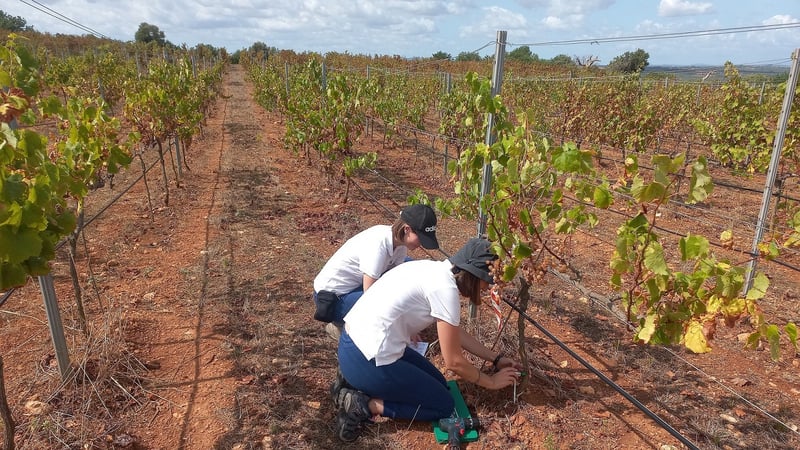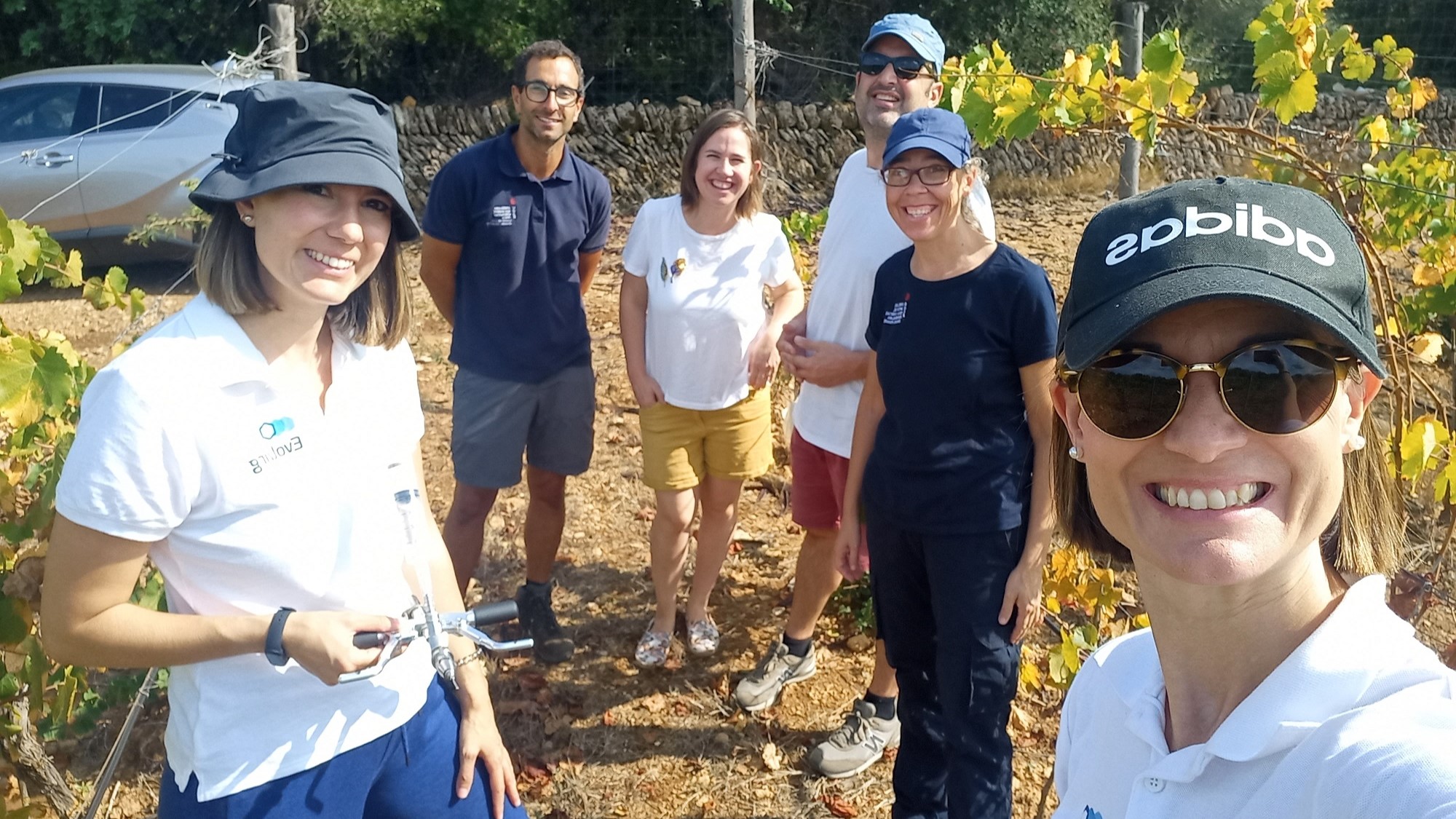- The treatment of crop plants in Mallorca, funded by the Ministry of Agriculture of the Balearic Islands Government, has been supported by previous work of I2SysBio and the Valencian Institute of Agricultural Research (IVIA), with the aim of attacking Xylella fastidiosa, one of the most deadly bacteria in the Mediterranean basin and against which there is no treatment
- This is the first pilot project with phages in agriculture in Spain, a technique that has already been used in people with cystic fibrosis
Phages, viruses that exclusively infect bacteria, may play a key role in the health of the field. Pilar Domingo-Calap, a researcher at the Institute of Integrative Systems Biology (I2SysBio), a joint center of the University of Valencia (UV) and the Spanish National Research Council (CSIC), is leading research with these viruses that has begun to treat crop plants affected by the Xylella fastidiosa bacterium in the Balearic Islands. Developed by Evolving Therapeutics SL, a spin-off of the UV, this is the first pilot treatment with phages in agriculture in Spain, a technique that has already been used in people with cystic fibrosis.
"We implement customized phage-based solutions, which are going to eliminate the target bacteria in a specific way, maintaining the microbiota of the organism to be treated, whether it is a plant, an animal, or even patients," explains Domingo-Calap, scientific director of Evolving Therapeutics and leader of the Environmental and Biomedical Virology research group at I2SysBio. The company, located at the University of Valencia Science Park, is part of the High Technology Incubator in Sustainable Agri-Food (AgrotecUV), an initiative of the UV and the University of Valencia Scientific Park Foundation (FPCUV) with high-tech firms in agriculture based on public-private collaboration.
"We implement customized phage-based solutions, which are going to eliminate the target bacteria in a specific way, maintaining the microbiota of the organism to be treated, whether it is a plant, an animal, or even patients," Pilar Domingo-Calap, scientific director of Evolving Therapeutics and leader of the Environmental and Biomedical Virology research group at I2SysBio
The treatment of crop plants in Mallorca, financed by the Conselleria de Agricultura del Govern de les Illes Balears, has been supported by previous work of I2SysBio and the Valencian Institute of Agricultural Research (IVIA), with the aim of attacking Xylella fastidiosa, one of the most deadly bacteria in the Mediterranean basin and against which there is no treatment. This pest, which is already endemic in Mallorca, mainly affects almond trees, olive trees and vines, and is one of the main quarantine pathogens in the European Union, for which farmers have to eliminate the affected plants.
Evolving Therapeutics SL, founded by Pilar Domingo-Calap and Marisa Domingo-Calap with the support of the Respiralia Foundation, a Balearic non-profit organization for the support of people with cystic fibrosis, offers preventive, diagnostic and therapeutic solutions against bacteria in an effective and environmentally safe way as key lines in the current context in which resistant bacteria in Spain represent a cause of mortality three times higher than traffic accidents and require new control strategies. In addition, phage therapy, of greater relevance for its promising results, can also be applied as biocontrol in animal and plant health.

The researchers and heads of Evolving Therapeutics SL, Pilar and Marisa Domingo-Calap, in a vineyard in Mallorca. Foto: Evolving Therapeutics SL.
"It is an opportunity for us to be pioneers in the field, the preliminary results make us strongly support this project. Until next year, when new leaves sprout again on the vines, we will not see if the treatment has worked, but we are doing a temporary monitoring to see its effectiveness", Francesc Adrover, plant health technician of the Conselleria d'Agricultura, Pesca i Medi Natural del Govern de les Illes Balears
"It is an opportunity for us to be pioneers in the field, the preliminary results make us strongly support this project. Until next year, when new leaves sprout again on the vines, we will not see if the treatment has worked, but we are doing a temporary monitoring to see its effectiveness," explains Francesc Adrover, plant health technician of the Conselleria d'Agricultura, Pesca i Medi Natural del Govern de les Illes Balears. "This study is essential in order to move towards sustainable and biologically safe treatments," says Marta Lopez, head of the plant health section of the Conselleria. "Although the results will be validated in the long term, it is a step forward in the fight against bacteria with new biological treatments, ecologically safe, and that will surely give much to talk about in the near future," she said.
Basic science has been key to the origin of the project, which began as a study to isolate phages capable of killing Xylella and to understand their potential use in plants. The new phages isolated in the research group of Pilar Domingo-Calap, in collaboration with the group of Ester Marco-Noales (IVIA), were the germ of this pioneering initiative in the Spanish field.
More Information
Interview with Pilar Domingo-Calap 'Nosaltres eSTEM'
Interview with Evolving thrapeutics as a company of the VIII VLC/Startup Awards


